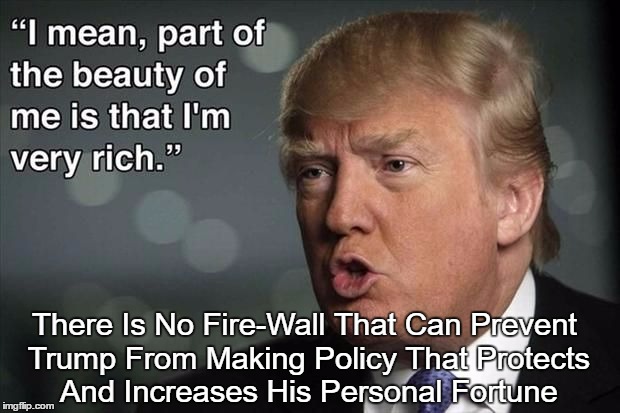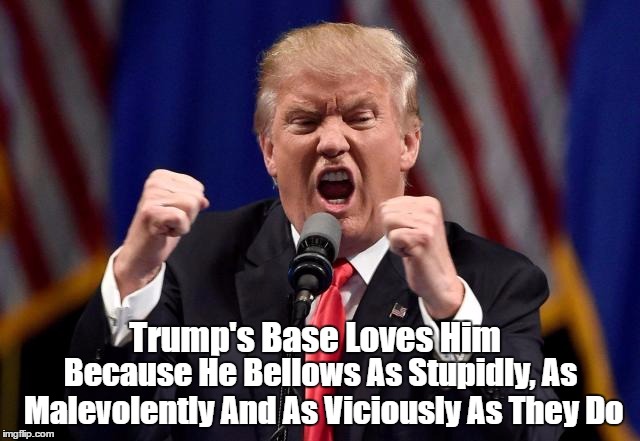
On July 24, 1943, the United States and Great Britain launched Operation Gomorrah, a seven-day-long attack on Hamburg, Germany, that destroyed much of the city and killed more than forty-two thousand German civilians, yet resulted in unusually few Allied casualties. The mission was successful in part because airmen in the bombers threw strips of paper that had been coated with aluminum paint out of the planes. This new decoy system, code-named chaff, so confused German radar that it cut the usual rate of downed aircraft by two-thirds.
Donald Trump has long deployed what might be called the chaff approach to evading legal scrutiny in his business dealings. Parts of his labyrinthine business holdings seem to be likely targets of investigation. He was sued for civil fraud over promises made to students of Trump University (a case that was settled after Trump became President). He talked on CNBC about the need to pay bribes when doing business overseas. His Atlantic City casino, the Taj Mahal, was in violation of anti-money-laundering laws when Trump owned it. He has had ties to New York Mafia figures. Yet he has never been indicted nor, for all we know, did any prosecutor consider pursuing a criminal case. Perhaps this is because the structure of Trump’s business has been, like chaff tossed out of a bomber, a remarkably effective defense. There is no one thing to look at when investigating Donald Trump. There’s not one company, there are hundreds, possibly thousands. Every deal he does has its own legal structure, its unique set of participants and business model. Rarely—and less often in the past decade—is Trump the primary owner and visionary of a project. More typically, he has sold a license to put his name on someone else’s project.
Robert Mueller, who was recently appointed as a special counsel to investigate Russian interference in the Presidential election, has the authority to clear up the picture. Mueller was given an expansive brief to investigate any links between “anyone associated with the campaign of President Donald Trump” and the Russian government as well as, basically, anything fishy he might turn up along the way. It seems reasonable to expect that the investigation will take a careful look at Trump’s business history. During the campaign and over the several years before it, Trump had business deals with several figures who are close to the Kremlin. To discover if there was collusion in 2015 and 2016, an investigator would surely want to better understand these earlier business relationships.
To take one example, Trump has tweeted and talked about his strong relationship with Aras Agalarov, the Azerbaijani-Russian billionaire and Putin ally who partnered with Trump on the Miss Universe pageant that was held in Moscow, in 2013, and from which Trump made a twelve-million-dollar profit, according to his lawyers. At the time, Trump tweeted about his hope that the pageant would be the occasion for him and Putin to become close. (“Do you think Putin will be going to The Miss Universe Pageant in November in Moscow – if so, will he become my new best friend?”) A few months later, Trump told the Conservative Political Action Conference, “I was in Moscow a couple of months ago, I own the Miss Universe Pageant and they treated me so great. Putin even sent me a present, a beautiful present.”
If investigators believe Agalarov played an important role in Trump’s relationship with Putin, they would likely explore Trump’s business ties to the Mammadov family of Azerbaijan. After all, Agalarov’s son was married to the daughter of that country’s President at the time. This line of inquiry would soon lead to other businesspeople who seem to have a link to both Trump and Russia, such as Tevfik Arif, the Kazakh businessman who moved to New York and partnered with Trump on several projects, including the Trump SoHo Hotel. There are other Trump business partners who have their own relationships with Putin or people close to him, such as the Russian-Israeli billionaire Lev Leviev and Mukemmel Sarimsakci, a Turkish businessman with close ties to Russian leadership who was, until this year, working with the Trump Organization’s new Scion Hotels.
Any or all of these relationships might be coincidental. They may have no connection to collusion between the Trump campaign and Russia and, for that matter, Mueller’s investigation might confirm President Trump’s statement that there was no collusion. However, it also seems possible that on his path to the truth about whether there was collusion, Mueller could uncover other criminal acts, such as money laundering, sanctions violations, and tax avoidance. Trump has, famously, partnered with people who are not always overly scrupulous about the law. At a minimum, it will take a long time to track down these and the many other intriguing and relevant threads in Trump’s business past.
I’ve spoken with several people who worked for Trump at the Trump Organization, all of whom describe an office with no set hierarchy, no routine way of doing business. There was a coterie of family members, staff, and friends whose primary way of achieving their goals was to physically sit with Trump and convince him, quickly, with glitter and flattery, to approve a project, knowing that he would quickly forget its existence and move on to something else. Trump doesn’t use a computer or e-mail. He does talk on the phone quite often, but mostly to people he has spent time with in person. I heard that there was no central repository of information at the Trump Organization, no project manager who is aware of everything Trump approved and which stages each deal had completed. The information was, literally, unknowable.
This was the essence of Trump’s chaff defense. There was so much confusion that it would be enormously costly for an investigator to make sense of it all. Prosecutors, like the rest of us, weigh costs and benefits and might not have wanted to spend time and money against a relative small fry in business. But the downside to the chaff way of doing business—of having so many partners, so many deals, so many different sources of payment—is that each one leaves a trail that could be picked up by an investigation that does have resources, time, and focus. There are the direct partners to a deal, as well as the many allied service providers, such as brokers, bankers, lawyers, title registrars, and others, all of whom keep careful records. When money changes hands there are, at least, three parties to the transaction: the entity sending the payment, the person receiving it, and the bank or other intermediary handling the transfer of funds. Most often, with large international deals, there are several financial entities involved in each transaction. Trump often did business with people known in banking as politically exposed persons, meaning government leaders or their family members who might be using their power for personal gain. His deals in Georgia, Azerbaijan, the Philippines, Indonesia, and Turkey, to name just a few, were with partners likely to trigger special scrutiny under U.S. and international banking rules.
Shortly after that first Allied experiment in dropping chaff out of its bombers, the German military learned that it could increase the power to its radar systems and see the planes through the distraction of foil strips. There have been generations of new technologies to find hostile aircraft, which inspired new techniques of hiding those planes. This is what happens when two hostile nations—the U.S. and U.S.S.R., say—have been able to deploy resources to the competition. In the past, the Trump Organization’s chaff structure might have served the purpose of confusing a full-on investigation. But it is not structured to withstand the level of scrutiny that Mueller can bring to bear as special counsel. That calculation has, now and permanently, changed.

No comments:
Post a Comment